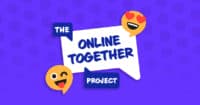How can you challenge acceptance of misogynistic views?
Both boys are keen users of social media, and James encourages them to never take statements that look like facts at face value.
“It’s so easy to make statements online that look like facts, but I’ve lost count of the number of times one of my sons has told us something as fact, but when we ask where the information is from, it turns out to be TikTok! We always advise them to look up things on known websites such as BBC or other reputable news outlets rather than trusting social media sites.”
James says that the online environment can create a culture where teens see misogynistic behaviour as acceptable. “If it’s okay for celebrities and politicians to make these comments unchallenged in the media, then surely they must be acceptable for teenagers to make?”
As teenagers, the boys also worry about the growing negativity towards young men in the media and worry that online misogyny means men are tarred with the same brush, unfairly.
What can parents do to challenge misogyny?
In light of these challenges, James says he speaks regularly with his boys, and offers this advice to other parents:
- If a comment is funny or provocative, invite teenagers to consider how they would feel if it was made towards a woman they know and like.
- It’s important as men that we model the behaviour and respect towards women that we expect our sons to use, and we highlight positive male role models.
- The car is a great place to have these conversations, because we have a captive audience!
- Make sure to give time for everyone to give their opinions, rather than trying to impose your own views.
- Be mindful of the many different news sources available to young people and how much their opinions are dictated by their peers. Parents need to keep an open mind and keep talking!
 Find more guidance on tackling misogyny at home, online and in the classroom with our ‘What is misogyny?’ guides for parents and for teachers.
Find more guidance on tackling misogyny at home, online and in the classroom with our ‘What is misogyny?’ guides for parents and for teachers.
GO TO GUIDE








